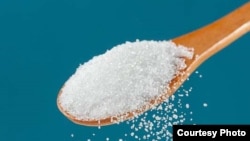Children who reduced their sugar intake saw a reversal of chronic metabolic diseases in as little as 10 days, according to a new study.
Writing in the journal Obesity, researchers at the University of California San Francisco and Touro University California say the reversals of high cholesterol, high blood pressure and other metabolic diseases occurred without reducing calorie intake or weight loss.
“This study definitively shows that sugar is metabolically harmful not because of its calories or its effects on weight; rather sugar is metabolically harmful because it’s sugar,” said lead author Robert Lustig, M.D., MSL, pediatric endocrinologist at UCSF Benioff Children’s Hospital San Francisco, in a statement.
Metabolic syndrome
“This internally controlled intervention study is a solid indication that sugar contributes to metabolic syndrome, and is the strongest evidence to date that the negative effects of sugar are not because of calories or obesity.”
Jean-Marc Schwarz, Ph.D., of the College of Osteopathic Medicine at Touro University California and senior author of the paper called the findings “striking” and underscored the importance for parents to monitor their children’s sugar intake.
The study monitored 43 children aged between nine and 18 who had “at least one other chronic metabolic disorder.”
They were given nine days’ worth of food that restricted sugar and added starch to maintain fat, protein, carbohydrate and calorie levels as they were eating before the experiment.
Total sugar intake was “from 28 to 10 percent, and fructose from 12 to 4 percent of total calories, respectively.”
Researchers say the food substitutions were “kid food” such as turkey hot dogs, potato chips and pizza in place of sugary cereals, pastries and sweetened yogurt.
“When we took the sugar out, the kids started responding to their satiety cues,” said Schwarz. “They told us it felt like so much more food, even though they were consuming the same number of calories as before, just with significantly less sugar. Some said we were overwhelming them with food.”
Impressive results
The results were impressive, seeing drops in blood pressure, triglycerides and LDL-cholesterol. Live function also appeared to improve.
“All of the surrogate measures of metabolic health got better, just by substituting starch for sugar in their processed food, all without changing calories or weight or exercise,” said Lustig.
“This study demonstrates that ‘a calorie is not a calorie.’ Where those calories come from determines where in the body they go. Sugar calories are the worst, because they turn to fat in the liver, driving insulin resistance, and driving risk for diabetes, heart, and liver disease. This has enormous implications for the food industry, chronic disease, and health care costs.”






